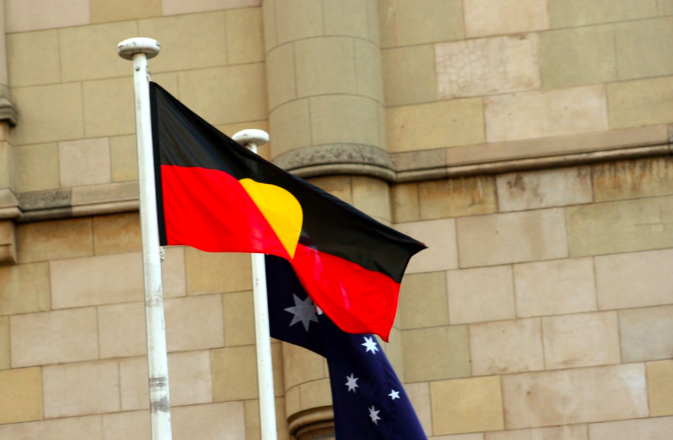
In 2002, the Victorian Government established the Koori Court system to address discrimination faced by Aboriginal people and their over-representation in all aspects of the criminal justice system. The Koori Court division of the Magistrates’ Court aims to ensure greater participation by the Aboriginal community in the sentencing of Aboriginal people.
Before Aboriginal people can access the Koori Court, they must first make a request for transfer to a magistrate. In 2017, when a magistrate refused the request of a young Aboriginal man – Zayden Cemino – to have his sentence determined in the Koori Court, access to the Koori Court became the central issue of an important appeal to the Supreme Court of Victoria. The Victorian Equal Opportunity and Human Rights Commission (the Commission) intervened in the appeal to make submissions on the application of Victoria’s Charter of Human Rights and Responsibilities (the Charter) to the proceedings.
In the Magistrates’ Court, Mr Cemino’s solicitor had argued that Mr Cemino wanted to go before his Elders in the Koori Court, where he would have felt more comfortable discussing his circumstances, including the recent passing of his mother, a Yorta Yorta woman. In his affidavit, Mr Cemino explained:
The Elders know who I am and who my family is. Talking to the Elders is like talking to my family. They can speak to me about my mother and her family, about who I am, and what it means to be Yorta Yorta … The Elders understand my feelings, that there is a ‘shame job’ there related to my mum because I treated her poorly and now she’s gone. The Elders know what this means for me. I can speak to them about this, in a way I can’t speak to the mainstream Court.
By including the presence and participation of Elders, and recognising cultural practices such as ‘shaming’, Koori Courts incorporate aspects of Aboriginal law into the Australian legal system in a very real and practical way. Having a case heard in a Koori Court is itself an expression of Aboriginal culture and is part of an Aboriginal person’s right to enjoy identity and culture protected under the Charter.
In the Supreme Court appeal, the Victorian Aboriginal Legal Service, on behalf of Mr Cemino, argued that the court made an error of law in applying an outdated principle from a 1994 case – effectively applying a clause of Victoria’s Magistrates’ Court Act 1988 which had since been repealed.
In addition, the Victorian Aboriginal Legal Service and the Commission argued that the court acted unlawfully under the Charter by failing to properly consider Mr Cemino’s Aboriginal cultural rights under section 19(2)(a) of the Charter, and his right to equality before the law under section 8(3) of the Charter, when making the decision about whether to transfer the matter to the Koori Court.
The Commission further argued that Aboriginal cultural rights under section 19(2) of the Charter contains a positive right of an Aboriginal person to enjoy their culture or identity, a position supported by international human rights law. In Angela Poma Poma v Peru (Human Rights Committee, Views: Communication No 1457/2006, UN Doc CCPR/C/95/D/1457/2006 (27 March 2009) 1), the United Nations Human Rights Committee recalled its General Comment 23 and confirmed that positive measures by state parties may be necessary to protect against the denial or violation of the cultural rights under Article 27 of the International Covenant on Civil and Political Rights. Human Rights Committee General Comment 23 states:
Although article 27 is expressed in negative terms, that article, nevertheless, does recognize the existence of a “right” and requires that it shall not be denied. Consequently, a State party is under an obligation to ensure that the existence and the exercise of this right is protected against denial or violation. Positive measures of protection are, therefore, required not only against the acts of the State party itself, whether through its legislative, judicial or administrative authorities, but also against the acts of other persons within the State party.
In September 2018, the Supreme Court ruled in favour of Mr Cemino and confirmed that courts must consider the distinct cultural rights of Aboriginal people under the Charter when making decisions in relation to an Aboriginal person’s request to be heard in the Koori Court. The Supreme Court also recognised the important role that Koori Courts play in addressing the systemic disadvantage faced by Aboriginal people in the justice system:
The Koori Court was established for purposes that included addressing systemic disadvantage faced by Aboriginal People who have been over-represented in the criminal justice system, in imprisonment and in deaths in custody. The Koori Court seeks to reduce that systemic disadvantage by providing special measures and accommodations so that the procedure is less disadvantageous for Aboriginal offenders; it protects against indirect discrimination on the basis of race.
This significant decision will increase access for Aboriginal people to the Koori Court; a positive outcome for Aboriginal people being sentenced in the Koori Court, and also for Victorian Aboriginal communities more broadly.
Now is the time to elevate the status of Koori Courts and expand them across Victoria. In August 2017, the Victorian Government announced a further $12.3 million in funding for the expansion of Koori Courts across Victoria under phase four of the Aboriginal Justice Agreement. The Victorian Government should also support Aboriginal service providers to service various Koori Court venues, in recognition of the fact that it is preferable for culturally competent lawyers from an Aboriginal service to appear with clients in this specialist jurisdiction. This is something Aboriginal communities have asked for through the Aboriginal Justice Agreement.
As our political environment takes shape over the next few years it is important we keep Aboriginal rights as a focus and continue to work to support Aboriginal communities to have a say about policies, practices and decisions that affect their lives.
- 4 ↩


